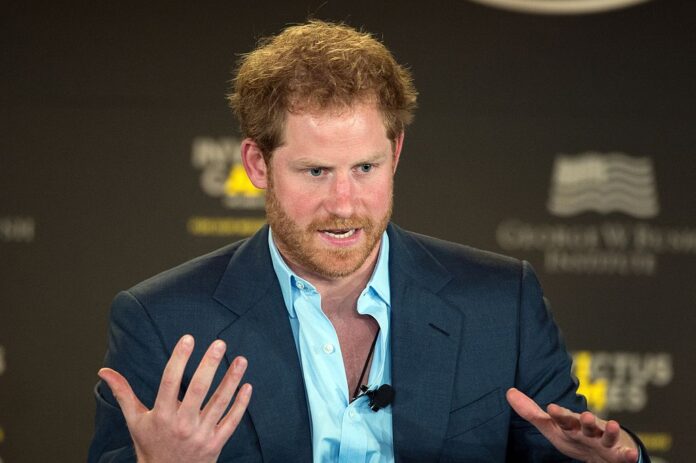Trust issues and public revelations continue to strain Prince Harry’s relationship with King Charles, despite moments of reconciliation
Prince Harry and King Charles have had a turbulent relationship ever since the Duke and Duchess of Sussex decided to step back from royal life in 2020. Their decision to relocate to America marked the beginning of a strained relationship, but the release of Harry’s memoir “Spare” and a subsequent Netflix documentary, in which he criticized the Royal family, exacerbated the tension.
The physical distance between them was the first hurdle in their relationship, but the content of Harry’s public revelations about his life under the royal spotlight created deeper issues. Royal fans had hoped for a reconciliation after Charles’ cancer diagnosis earlier this year. However, royal biographer Robert Hardman, speaking at the Hay Festival in Wales, expressed doubts about the rift being healed anytime soon.
Embed from Getty ImagesHardman, author of “Charles III: New King, New Court,” pointed to a “trust issue” as the core of the ongoing feud. He emphasized that Harry’s detailed disclosures in “Spare” wounded the Royal family, particularly Prince William. Hardman noted, “It’s not what Harry said, it’s the fact that he said it, and he gave away so many secrets. And he was, effectively, at the time of the Queen’s death, you know, he was taking notes.”
Harry’s memoir, despite being an “amazing” read according to Hardman, suggested deeper underlying issues. The biographer hinted at the possibility of a second book, given the brevity of certain sections, such as Harry’s wedding to Meghan Markle. He speculated that Charles is “unhappy” with the ongoing rift, finding the situation unsettling.
Despite the tension, Harry’s actions following his father’s cancer diagnosis in February offered a glimpse of hope for reconciliation. Upon learning about his father’s health issues, Harry flew to the UK to visit King Charles. He later expressed his love for his family during an appearance on Good Morning America. This visit, Hardman noted, was kept private, which was seen as a positive sign by those within the palace.
Hardman highlighted the significance of Harry’s discretion following the visit. “What encouraged people at the palace and encouraged the king was the fact that afterwards, we didn’t then read about it or hear about it. It remained private,” he said. This gesture, he believes, could be crucial in mending the familial divide.
The relationship between Prince Harry and King Charles remains complicated, with trust issues and public revelations continuing to strain their bond. While moments of reconciliation, such as Harry’s visit following Charles’ cancer diagnosis, offer hope, the path to a full resolution appears challenging.
Analysis :
The feud between Prince Harry and King Charles highlights several key issues within the Royal family. From a political perspective, Harry’s public criticism of the Royal family and his revelations in “Spare” have significant implications. These actions undermine the traditional image of the monarchy, which relies on discretion and unity to maintain public support. Harry’s decision to speak out can be seen as a challenge to the established norms and authority of the monarchy.
Sociologically, the rift underscores the generational and cultural shifts within the Royal family. Harry and Meghan’s decision to step back from royal duties and move to America reflects a desire for independence and a break from traditional royal expectations. This move resonates with younger generations who value personal freedom and transparency, contrasting with the older generation’s emphasis on duty and privacy.
Economically, the ongoing feud and public disclosures have financial implications for the Royal family. Negative publicity can affect public opinion and potentially influence funding and support for royal initiatives. Moreover, Harry and Meghan’s independent ventures, such as their Netflix deal, highlight a shift towards leveraging their royal status for financial gain outside traditional royal structures.
From a local perspective, the rift impacts the public’s perception of the Royal family in the UK. The monarchy serves as a symbol of national unity, and internal conflicts can undermine this role. Harry’s actions have sparked debates about the relevance and role of the monarchy in modern society, influencing public opinion and potentially leading to calls for reform.
In terms of gender and race, Meghan Markle’s experience as a biracial woman in the Royal family adds another layer to the analysis. Her treatment by the media and the Royal institution has highlighted issues of racism and sexism, prompting discussions about diversity and inclusion within the monarchy. Harry’s defence of Meghan and their joint decision to step back can be seen as a stand against these prejudices.
Finally, from the perspective of marginalized communities, Harry and Meghan’s departure and their subsequent revelations have shed light on the pressures and challenges faced by individuals within the Royal family. Their story resonates with those who feel marginalized or silenced within their own families or institutions, emphasizing the importance of speaking out and advocating for change.
The feud between Prince Harry and King Charles is a complex issue with deep-rooted implications across various dimensions. While moments of reconciliation offer hope, the resolution of their differences requires addressing the underlying issues of trust, transparency, and changing expectations within the Royal family
